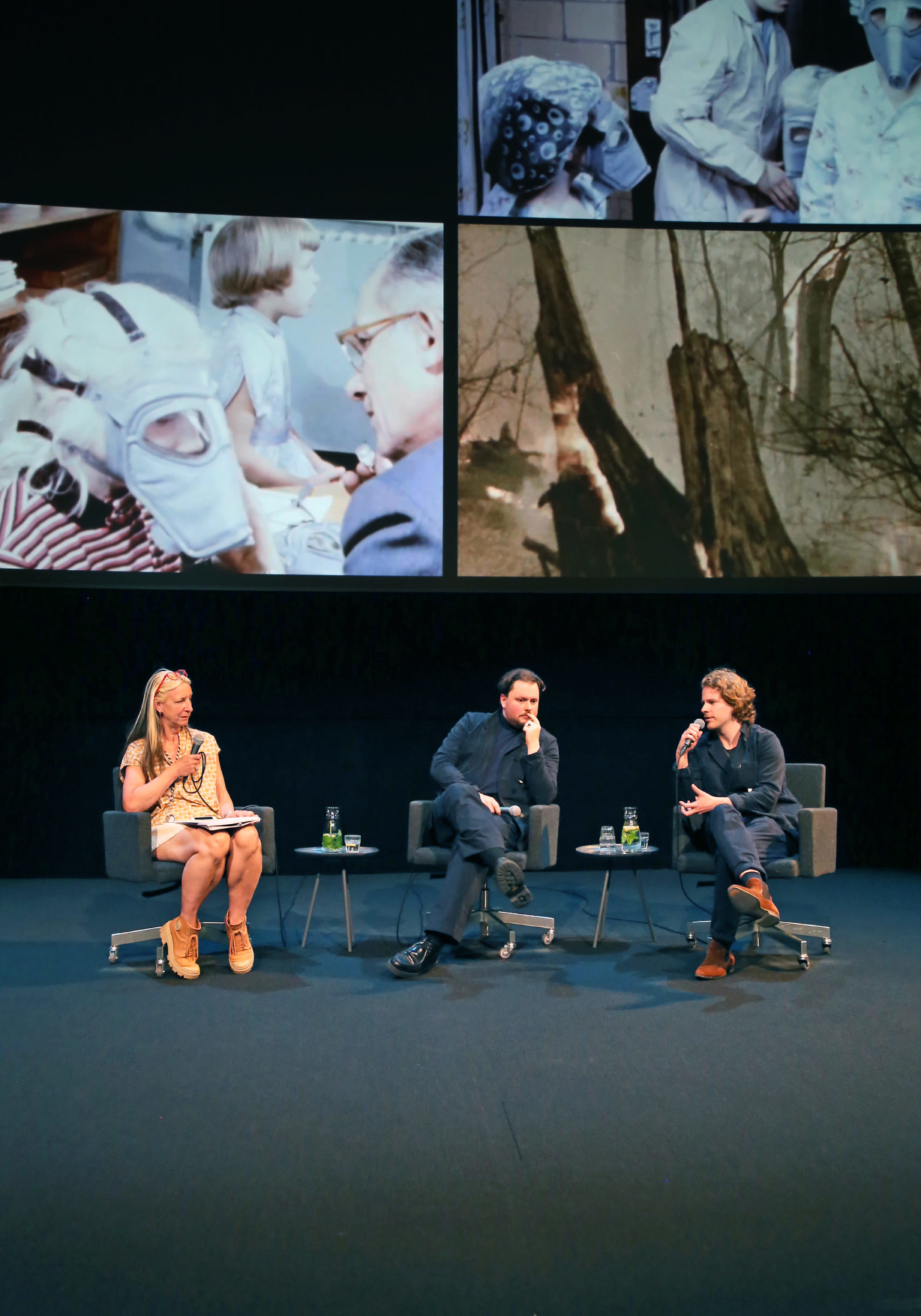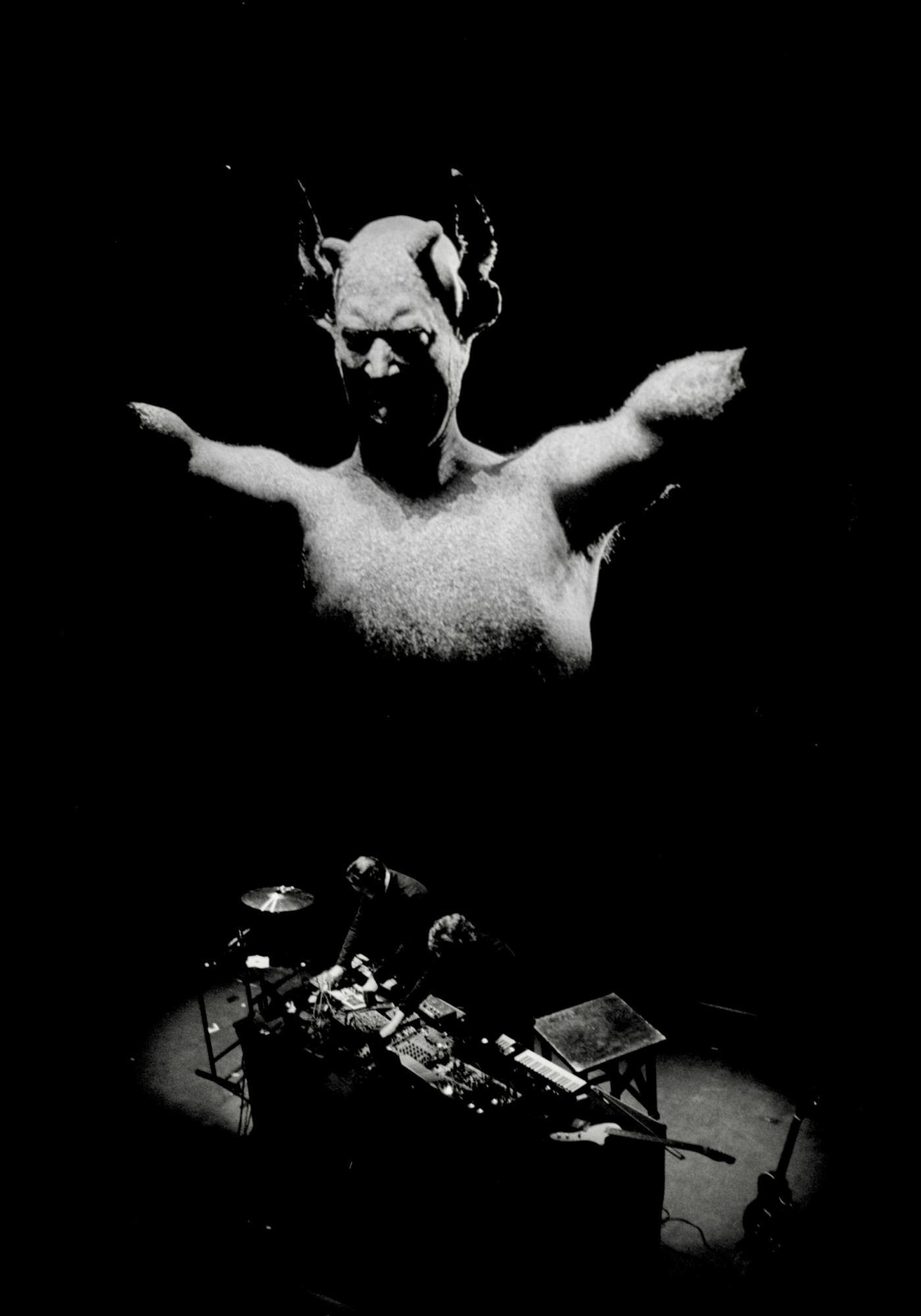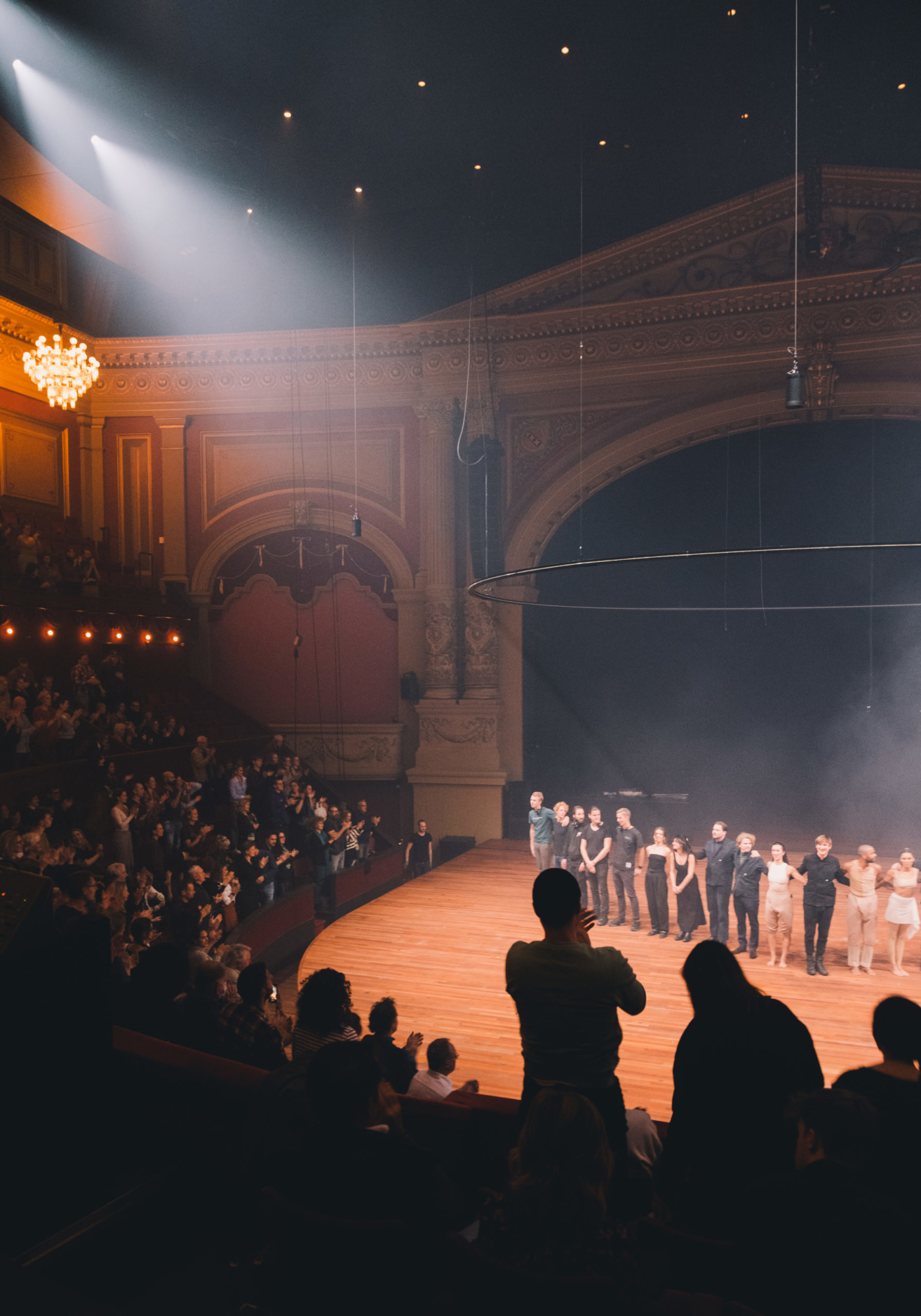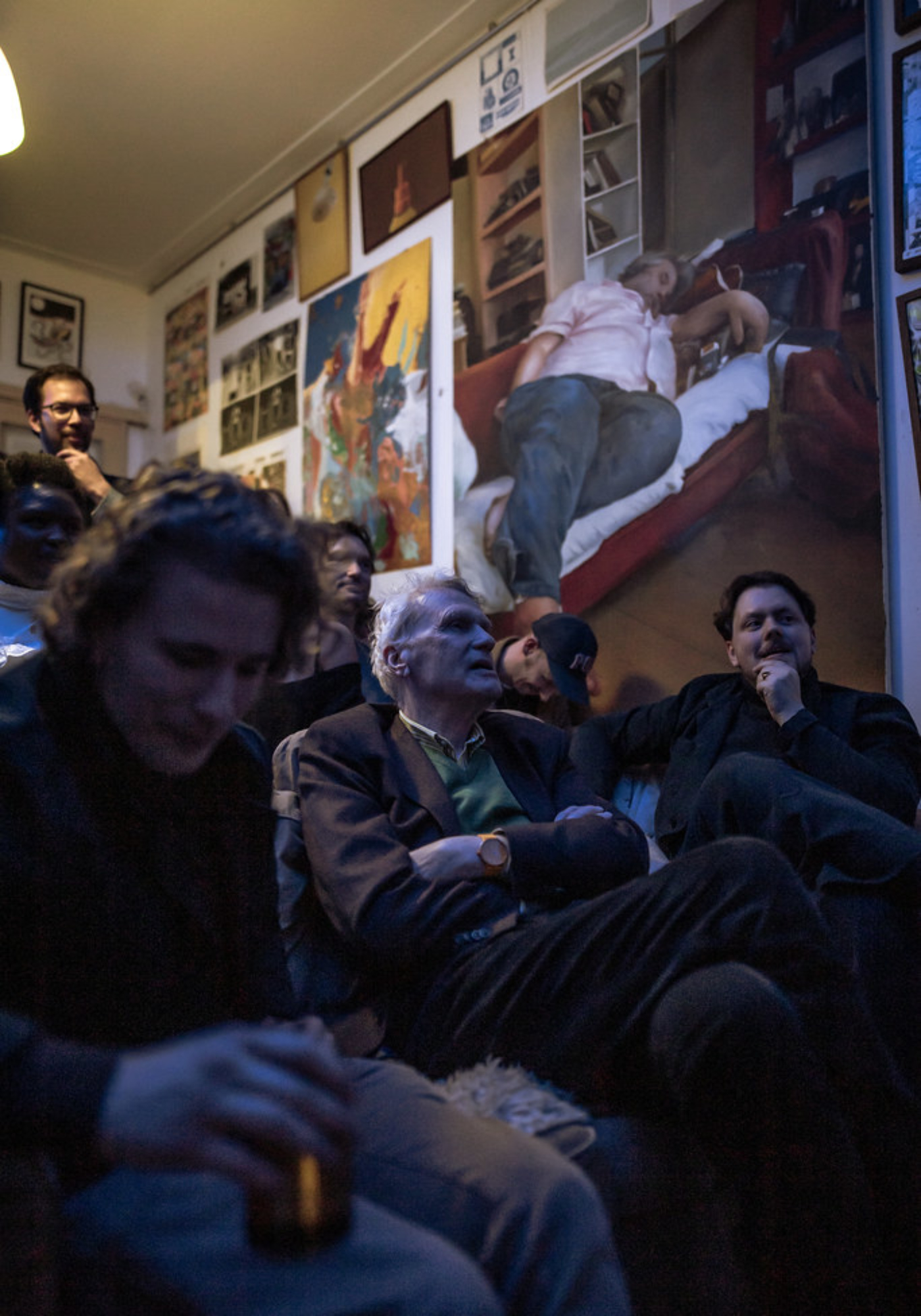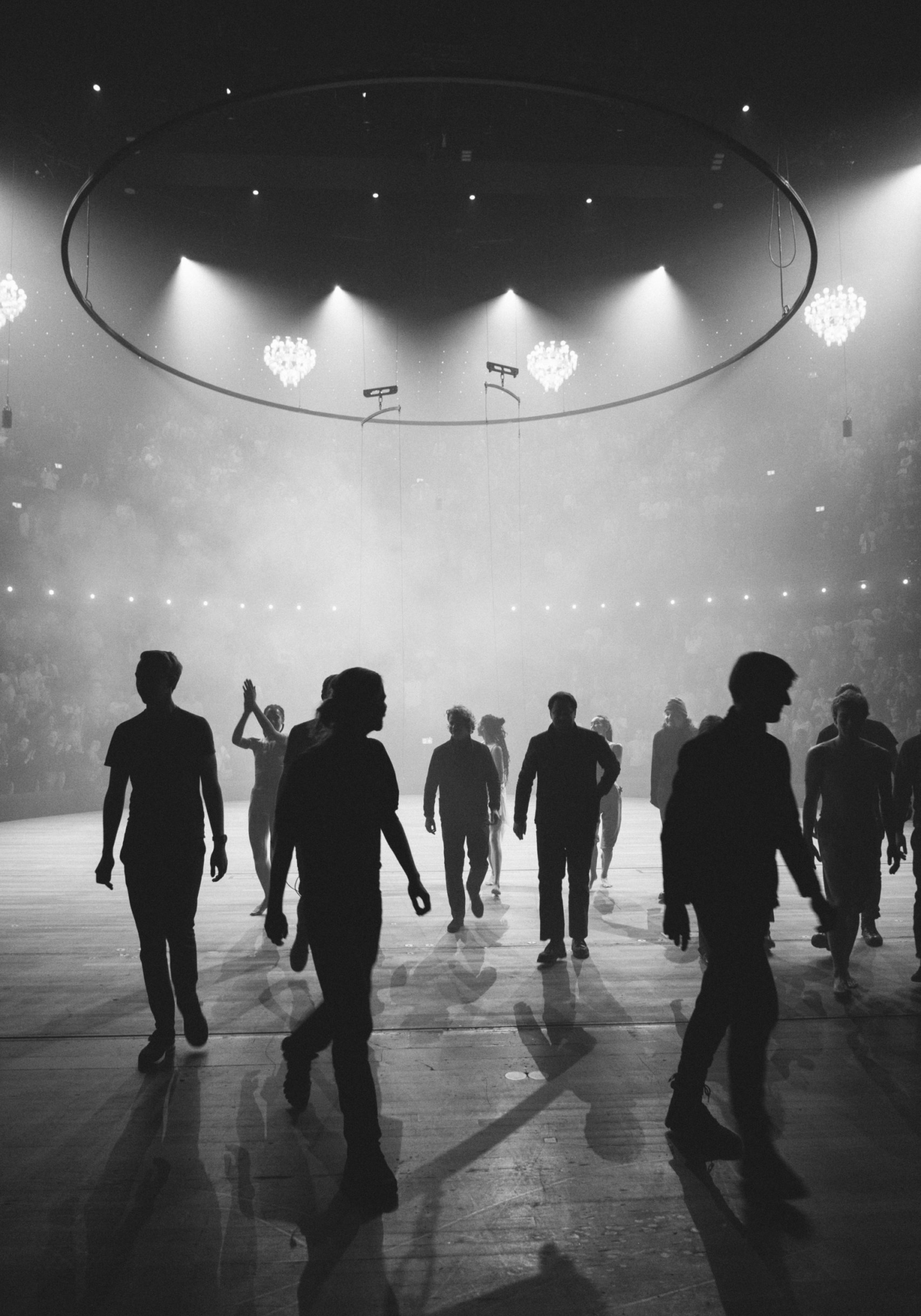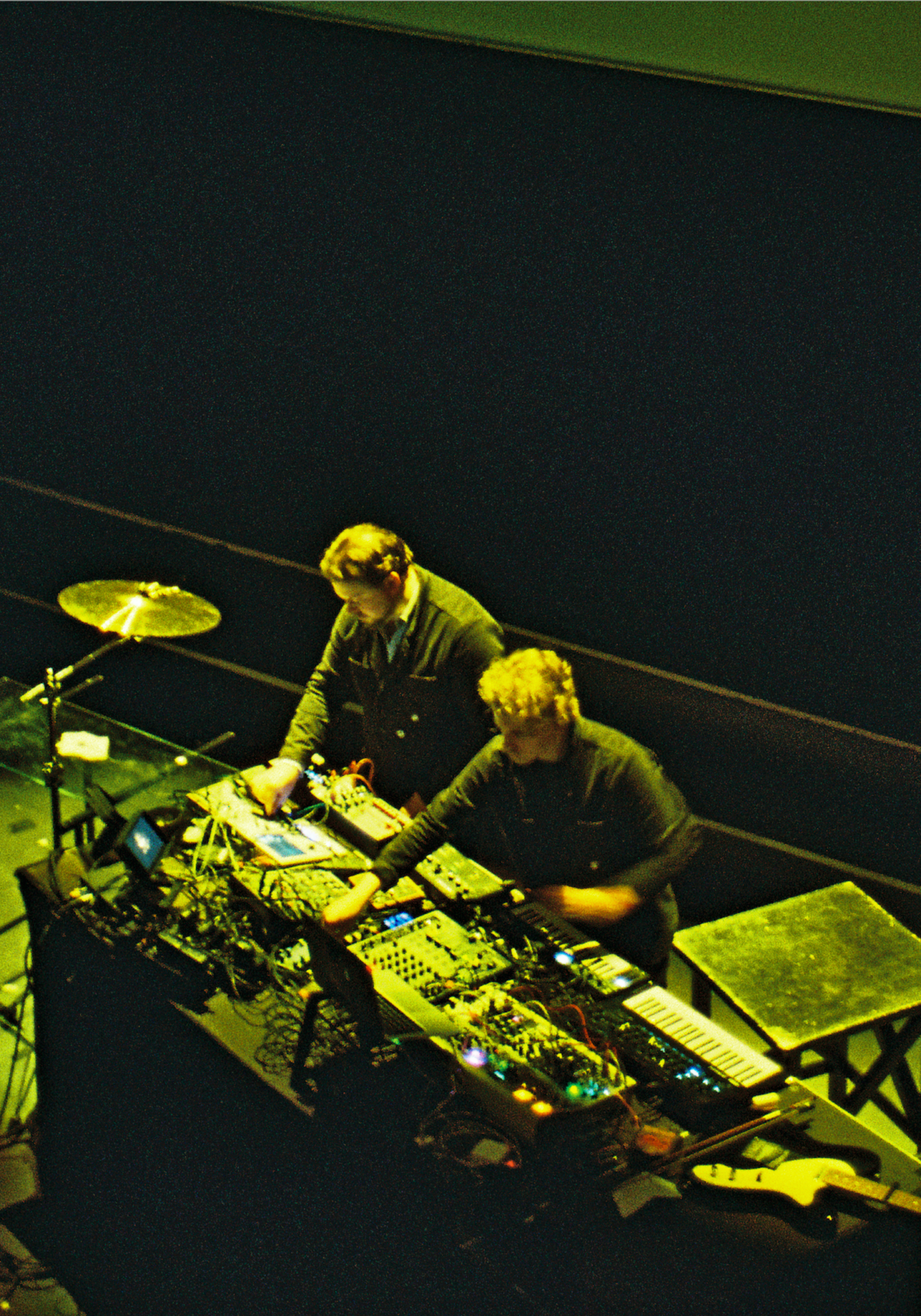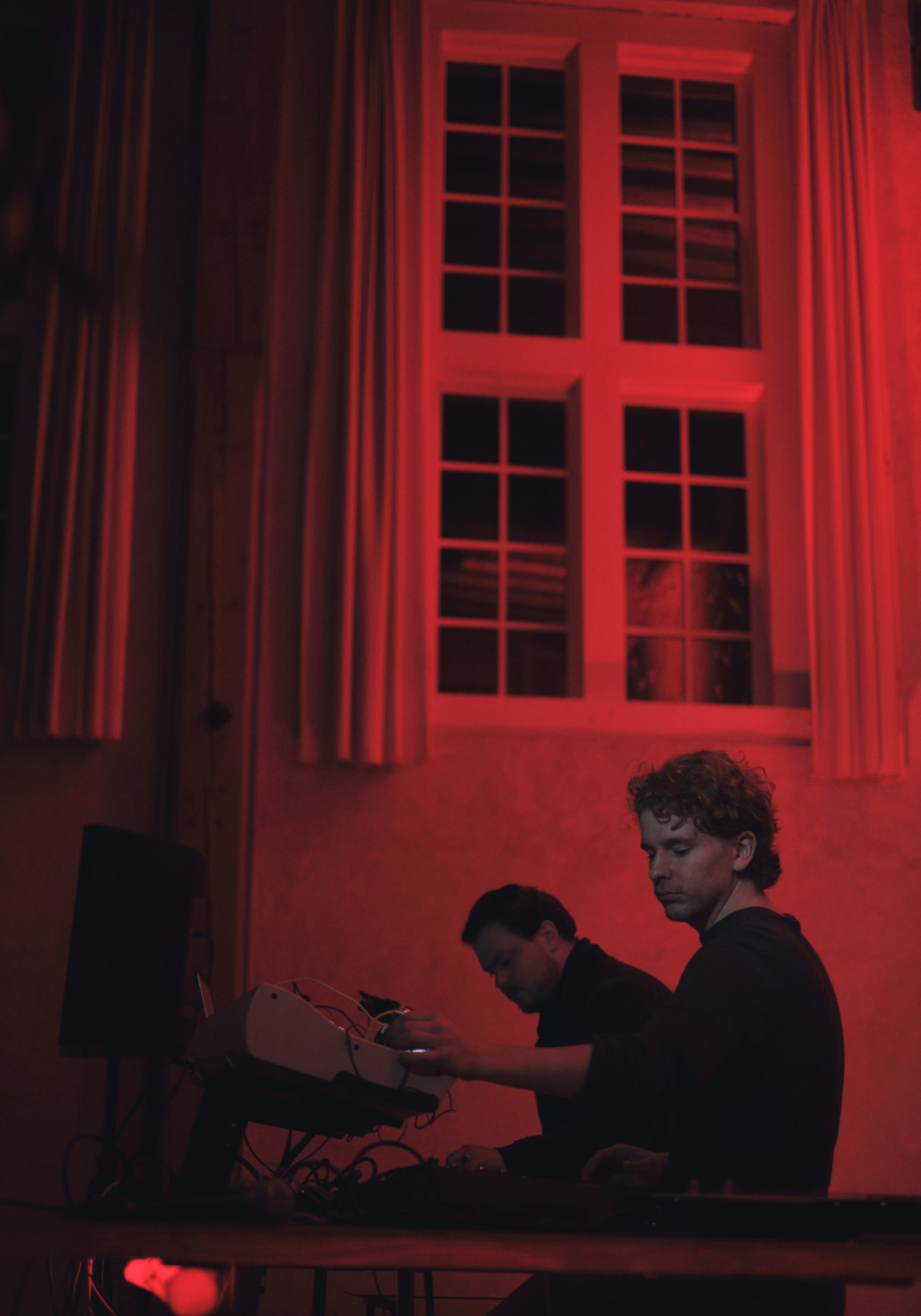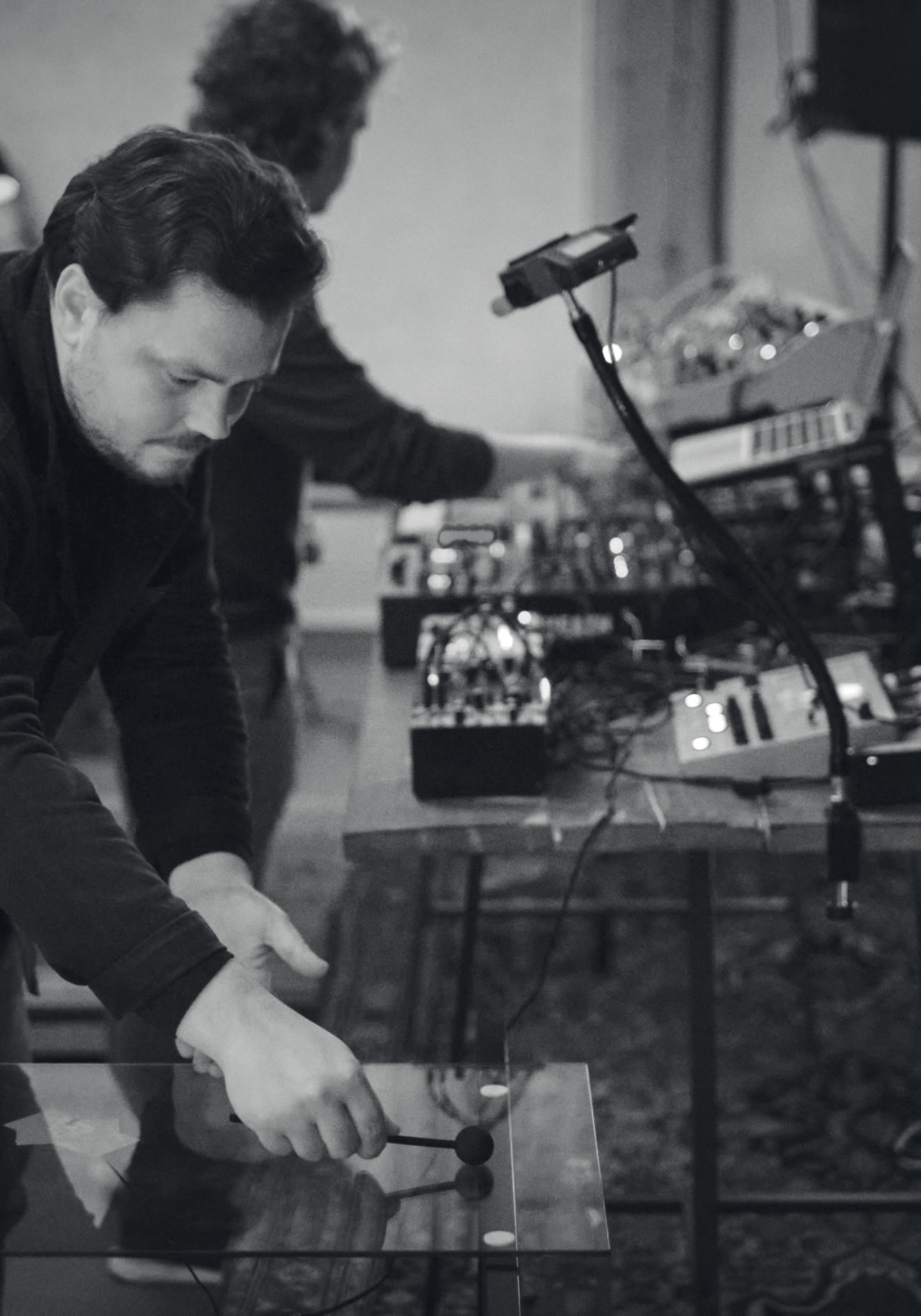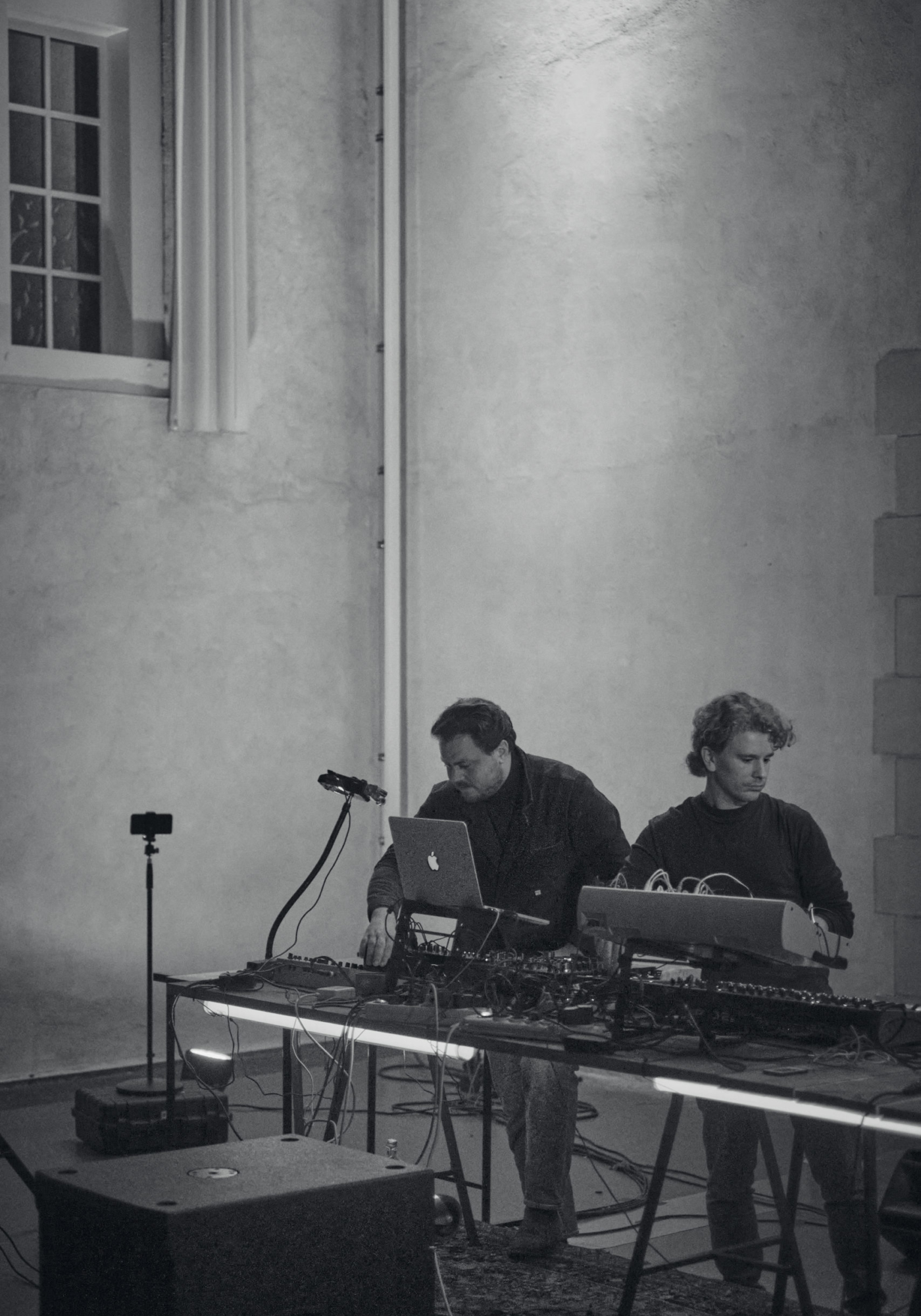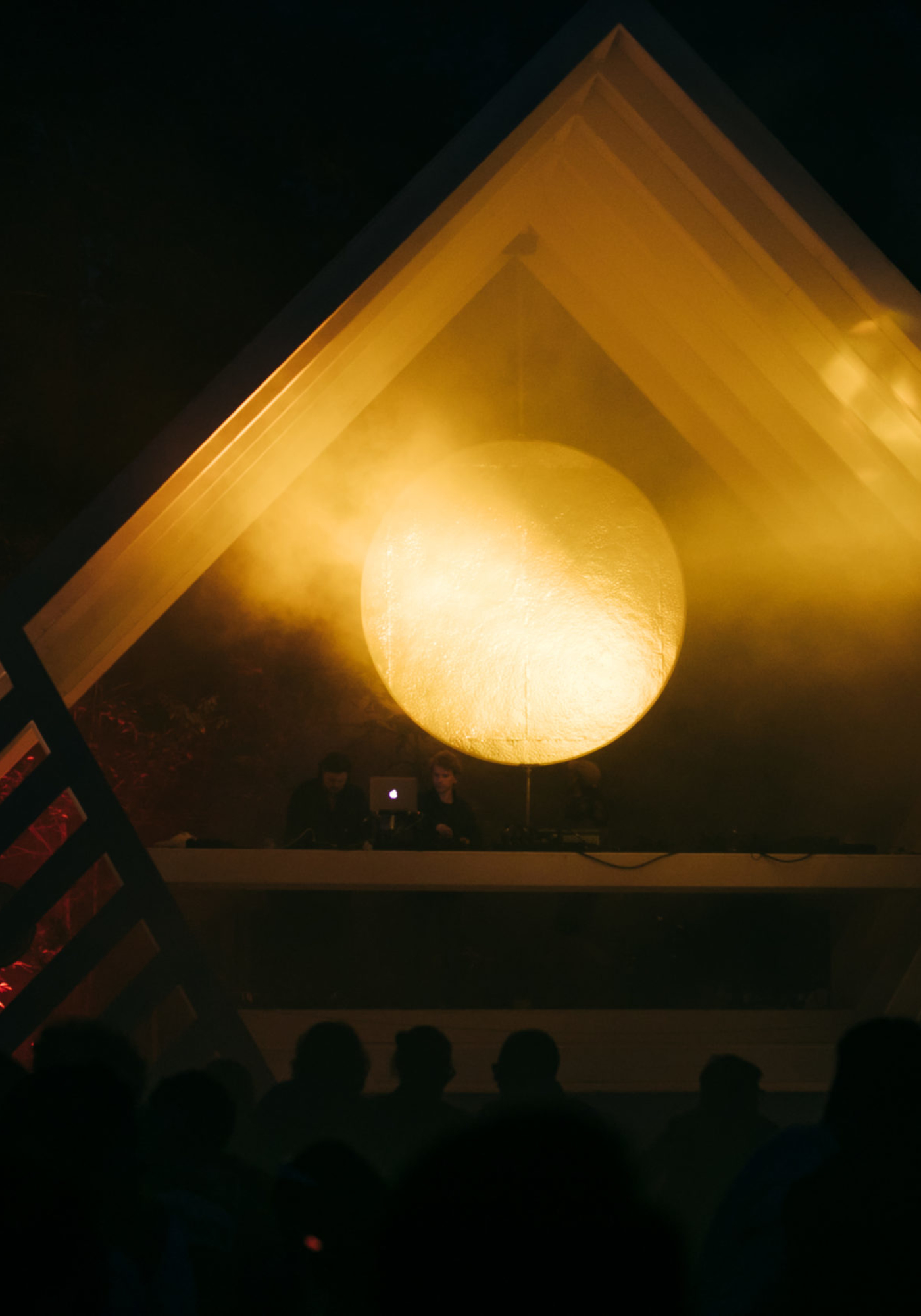The Amsterdam-based collective Wanderwelle consists of Alexander Bartels (b. 1993) and Phil van Dulm (b. 1993). Spanning a wide range of art-making—including experimental music, live performances, film, video installations, writing, and photography—their work is
fuelled by shared interests and academic backgrounds in history, art history, and medicine.
Wanderwelle’s output is characterised by a strong conceptual foundation and uncanny elements, featuring a non-linear view of time that explores connections between past and present in the ominous space between echoing timelines that harbour both reason and superstition. This perspective is evident in their album trilogy, released on the prestigious US-based label Important Records, where they intertwine themes of the impact of the climate crisis on coastal regions with ancient sailors’ superstitions and medieval folklore.
These ideas also come to fruition when Wanderwelle works with archival material, as this form of media can engage with contemporary issues by referencing and building upon past perspectives and insights. Their experimental collage film, The Four Nightmares (2023), is assembled from material they unearthed in the extensive collection of the Eye Filmmuseum. It depicts the story of a man plagued by nightmares that foretell the apocalypse, drawing on the great crises of our time. The film has been selected for the Gouden Kalf Competition (2023) and the Debut Competition (2023) by the Netherlands Film Festival (NFF). The Four Nightmares premiered at the Eye Filmmuseum and was accompanied by their video installation The Summer of ’72 (Fire), which addresses the failed relationship between the climate crisis and education.
In December 2024, Wanderwelle’s first exhibition opened at the Amsterdam City Archives. Phantasmopolis is a series of haunting photomontages, accompanied by a video work, constructed from archival photographs sourced from the collection. The exhibition centres on phantoms, apparitions, and ghosts, brought to life through a blend of visual and historical techniques
Their music lies in the twilight zone of ominous ambient and experimental music, which they perform with a large arsenal of electronic, acoustic, and self-made instruments. In a short period of time, they became known for their vinyl albums and live performances in art galleries, museums, festivals, clubs, and renowned venues, such as the Royal Theater Carré, Tresor and Paradiso. Their albums get (inter)national coverage from magazines like The Wire, Gonzo (circus) and Rockerilla.
Around the same time, alongside their first album for Important Records, Wanderwelle worked on their graphic novel De duizendpoot (The Centipede). With The Centipede the duo debuted as scriptwriters.
In October 2022, Wanderwelle performed at the Royal Theatre Carré as part of Within Without II, an interplay of grand light installations by Nick Verstand, dancers from the Dutch National Ballet, and their music, which formed the sonic backbone of the piece. Wanderwelle occasionally performs live scores for silent films. At Paradiso’s main hall, for instance, the artists provided a contemporary, haunting soundtrack to the film Häxan (1922).
Currently, they are working on Inferno, a short film in collaboration with renowned photographer Roger Ballen, as well as their first feature-length experimental documentary, titled Misery Blvd., which will be narrated by Canadian auteur filmmaker Guy Maddin.
